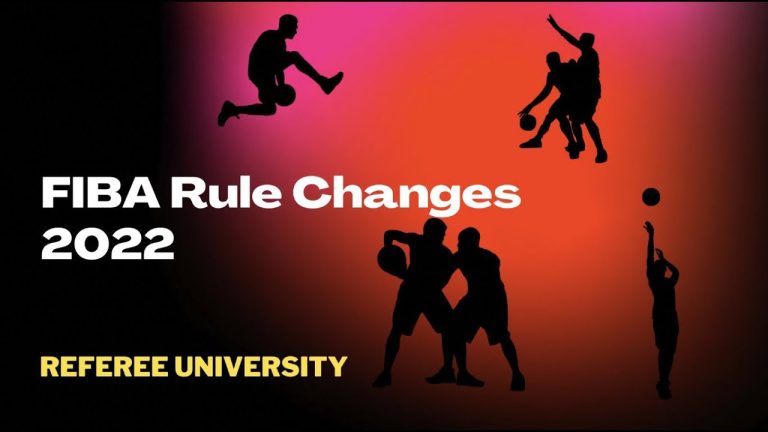
Are you ready to dive into the world of umpires? Look no further! In this article, we will explore the fascinating realm of official rulebook interpretations for umpires. Whether you’re a baseball enthusiast or just curious about the intricacies of the game, we’ve got you covered. Get ready to unravel the secrets behind every controversial call and uncover the hidden gems within the rulebook. Join us as we shed light on this essential aspect of sportsmanship and discover how umpires bring order to the chaos on the field. Get ready for a thrilling journey into the world of rulebook interpretations!
What tasks does an umpire have?
An umpire plays a crucial role in sporting events, with a range of duties and responsibilities. Their primary task is to judge gameplay, ensuring fair outcomes by awarding points and making decisions on the results. They closely observe the game, applying the rules and regulations to make calls and assess penalties when necessary. Moreover, they also have the important duty of ensuring that all teams adhere to safety regulations, prioritizing the well-being of the players and maintaining a safe playing environment.
In summary, the duties of an umpire encompass judging gameplay, enforcing rules, and ensuring safety. Their presence and expertise contribute to the fairness and integrity of sporting events, keeping the game running smoothly and protecting the welfare of the participants. With their watchful eyes and firm decision-making, umpires are indispensable figures in the world of sports.
What is the definition of umpires?
Umpires play a crucial role in the world of sports, as they are entrusted with the responsibility of enforcing on-field rules and making judgment calls. Their main tasks include determining whether a batter or baserunner is safe or out, and deciding whether a pitched baseball is a strike or a ball. With their keen eyes and extensive knowledge of the game, umpires ensure fair play and maintain the integrity of the sport, making them an indispensable part of any match.
Which sports require the presence of umpires?
Sports Umpires play a crucial role in officiating various sporting events, ensuring fair play and upholding the integrity of the game. From netball and hockey to football, basketball, cricket, boxing, and wrestling matches, these skilled individuals interpret and enforce match rules with precision and authority, creating an environment that fosters healthy competition and sportsmanship. With their expertise and unwavering commitment, umpires contribute significantly to the smooth running and success of these sports, making them an indispensable part of the game.
Inside the Minds of Umpires: Demystifying Rulebook Interpretations
Paragraph 1: Inside the Minds of Umpires: Demystifying Rulebook Interpretations
Ever wondered why umpires make certain calls that seem questionable? Step inside the minds of umpires as we demystify the complex world of rulebook interpretations. Umpires are not just robots enforcing the rules; they are highly skilled individuals who must make split-second decisions based on their deep understanding of the game and its intricate regulations. Their ability to interpret the rulebook in real-time is what sets them apart, ensuring fair play and maintaining the integrity of the sport. Unlock the secrets behind their calls and gain a new appreciation for the challenging role umpires play in the game.
Paragraph 2: Unveiling the Hidden Artistry of Umpiring
Umpiring is an art form that goes beyond black and white rulebook interpretations. It requires a delicate balance of instinct, experience, and knowledge. Umpires must not only apply the rules accurately but also factor in the context and spirit of the game. They must anticipate plays, read the game flow, and make split-second judgment calls that can change the course of a match. It is this hidden artistry that keeps spectators on the edge of their seats and players on their toes. So next time you find yourself questioning an umpire’s decision, remember the intricate dance between rules and intuition that takes place in their minds.
Cracking the Code: Revealing the Secrets Behind Umpires’ Rulebook Interpretations
Paragraph 1:
Unraveling the enigmatic world of umpires’ rulebook interpretations is like cracking a complex code hidden within the game of baseball. With every pitch, swing, and slide, umpires are tasked with making split-second decisions that can determine the outcome of a game. But what goes on behind the scenes? How do they navigate the intricate web of rules and regulations? Delving into the depths of their expertise, this article uncovers the secrets behind umpires’ rulebook interpretations, shedding light on the meticulous process that shapes the game we love.
Paragraph 2:
At the heart of umpires’ rulebook interpretations lies a delicate balance between consistency and subjective judgment. While the rulebook provides a framework for their decisions, it often leaves room for interpretation. Umpires must possess a deep understanding of the game’s nuances, coupled with a keen sense of fairness. Their ability to apply the rules in real-time, adapting to the ever-changing dynamics of the game, is a testament to their skill and expertise. By demystifying their decision-making process, this article aims to give fans and players alike a glimpse into the intricate world of umpires’ rulebook interpretations, fostering a greater appreciation for the artistry that lies within the white lines.
In summary, official rulebook interpretations for umpires serve as the beacon of clarity and consistency in the world of sports. By providing a standardized framework for making critical decisions on the field, these interpretations ensure fair play and uphold the integrity of the game. Umpires, armed with this invaluable resource, can confidently navigate the complexities of the sport, leaving players, coaches, and spectators with a sense of trust and confidence in the officiating process. With each call made in accordance with these interpretations, the game continues to flourish, and the spirit of competition remains untarnished.
